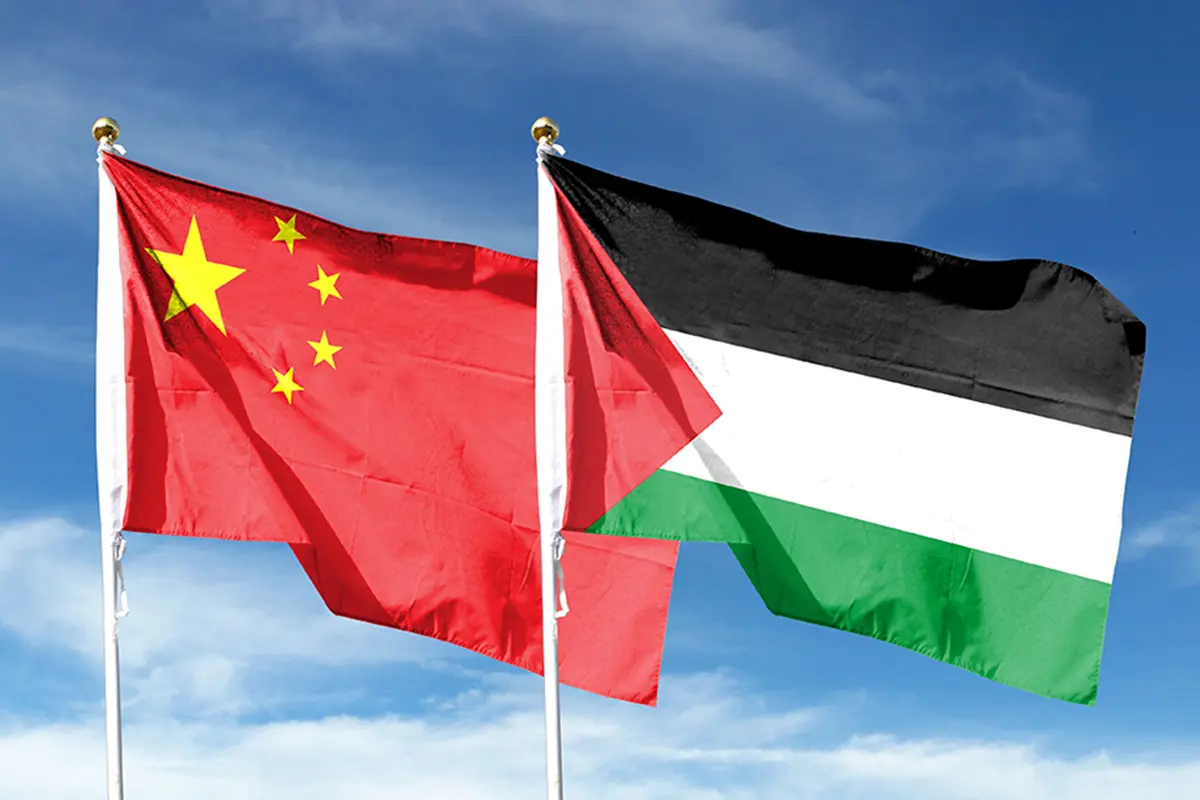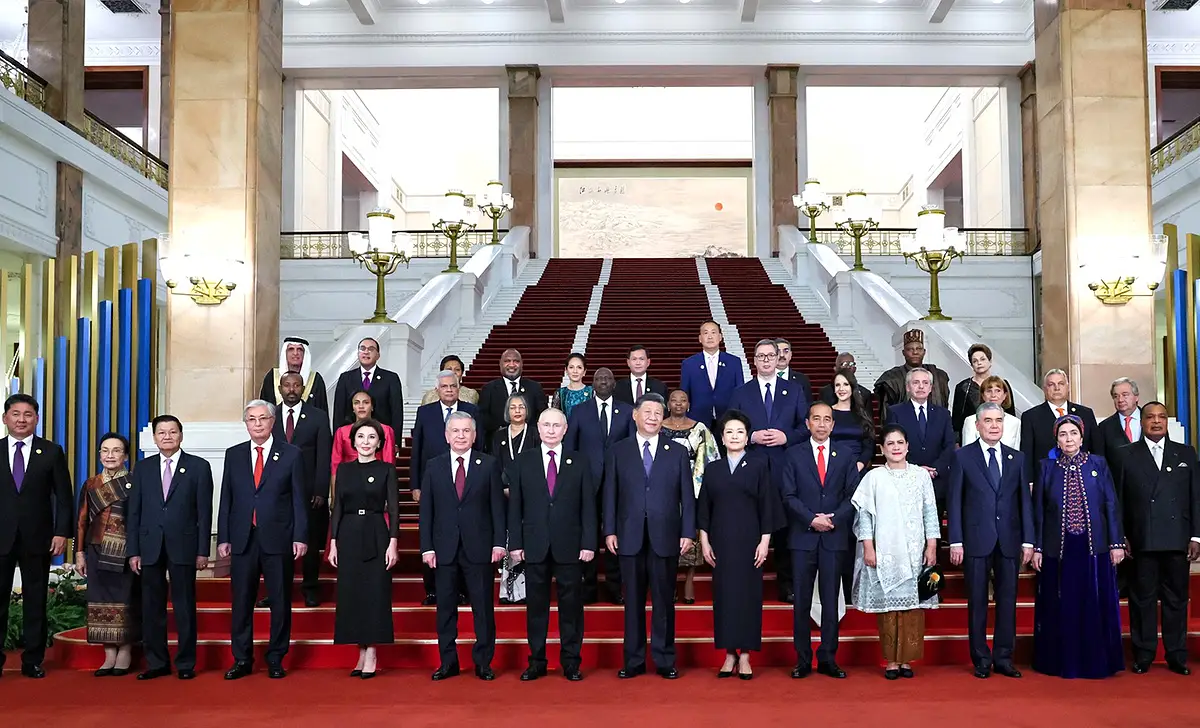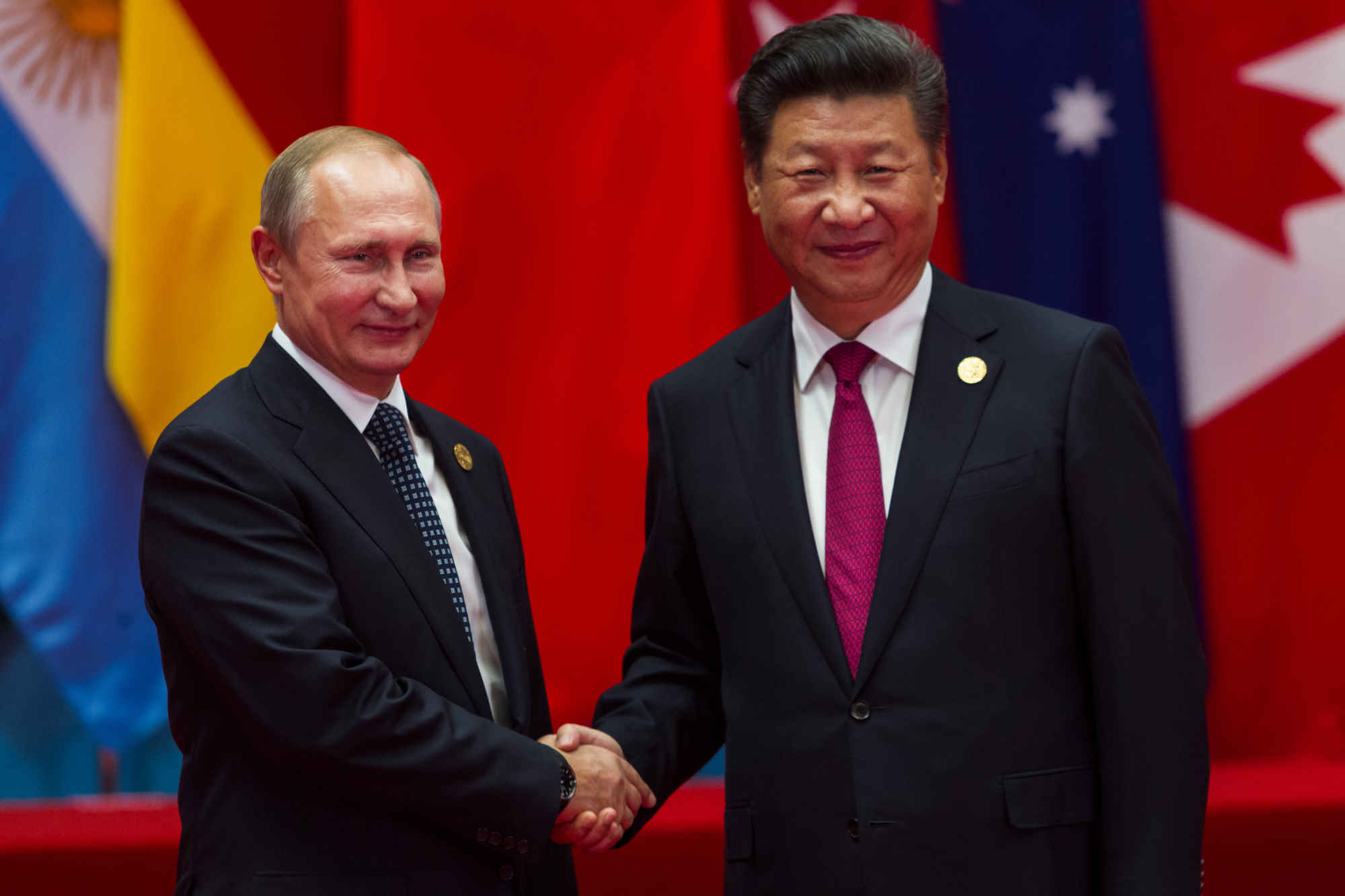The Israel-Iran war that broke out on June 13 and US strikes on suspected Iranian nuclear sites on June 21 provide an opportunity to examine how Russia and China respond to a military crisis in Iran. Six months before hostilities broke out, CNA published a study on The Evolving Russia Iran-Relationship, in which we identified a deepening anti-Western political alignment, growing military cooperation, and expanding—but limited—economic ties between Russia and Iran.
The People’s Republic of China (PRC) and Russia have both signed strategic partnership agreements with Iran—without a mutual defense clause. As we concluded in our study, greater engagement between Russia (and China) and Iran does not necessarily indicate that trilateral coordination is emerging or even likely. In recent days, Russia and China have shown rhetorical support for Iran, including drafting a joint UN Security Council resolution calling for a ceasefire and the two countries separately making vague pledges of future aid. But we have seen no concrete sign of joint Sino-Russian military engagement on Iran’s behalf.
Russian Responses
Given the close and growing ties between Russia and Iran, especially since the onset of the Russia-Ukraine war in 2022, official Russian responses were relatively muted during the conflict and in the immediate aftermath. The Russian Ministry of Foreign Affairs declared that it “decisively condemns” the US and Israeli strikes against Iranian nuclear facilities, characterizing them as an “irresponsible decision to subject the territory of a sovereign state to missile and bomb attacks” that violate “international law, the UN Charter, and UN Security Council resolutions.” The ministry did not acknowledge the irony of making that statement in the same week that Russia was launching further missile attacks against Kyiv.
Meanwhile President Vladimir Putin at the 28th St. Petersburg International Economic Forum said that Iran had a “legitimate right” to carry out uranium enrichment for civilian nuclear energy development. Yet he also acknowledged “Israel’s security concerns” and suggested Russia could act as an intermediary between the two—an offer that US President Donald Trump noted in informal comments as well. Putin met with Iranian Foreign Minister Abbas Araghchi during his recent visit to Moscow without making any firm commitments beyond the Russian president’s general comments that the “absolutely unprovoked aggression against Iran has no basis and no justification.”
In general, the Russian approach has been cautious, with generic condemnations but moderated rhetoric and little public, substantive action. The Russian foreign policy commentariat in major domestic newspapers has largely taken the same line, noting some concern but keyed into the idea that the issue needed nuance rather than overheated reactions. Kremlin Press Secretary Dmitry Peskov even made a point of clarifying that ongoing US-Russia talks would not be influenced by the Iranian situation, describing them as “separate processes.”
The one exception to this cautious trend was initial commentary from former Russian president Dmitry Medvedev, who sits as deputy chairman of the Security Council in Moscow and positions himself as a hawkish figure in online statements. He stated that “Trump, who came in as a peacemaker president, has started a new war for the US” and alluded to the idea that other countries might even supply Iran with nuclear weapons.
Medvedev was then directly castigated by President Trump, who reminded him that Putin was the “THE BOSS” and challenged him to confirm his statement about nuclear proliferation. Medvedev later retracted it—possibly under pressure from President Putin or another handler in the Kremlin—in a carefully worded and vaguely humiliating response on X (Twitter). This underlines the point that Russia is calibrating its public positions in a way that avoids overt antagonism on the issue.
PRC Responses
Following the US strikes on Iranian nuclear sites, Fu Cong, the PRC’s Permanent Representative to the UN, condemned the US actions and blamed Washington for “irresponsible behavior” that led to escalation of tensions and the current Iranian nuclear crisis. China’s first move after hostilities broke out in mid-June was to evacuate the 3,125 PRC citizens in Iran, initially by bus overland to Turkmenistan, Azerbaijan, and Armenia, and later by plane to China. Reports on June 17 of three mysterious flights of cargo planes from China that hid their flight data were likely connected to the PRC’s evacuations of its nationals, although some have speculated they also could have been used to illicitly ship lethal aid to Iran or retrieve sensitive equipment.
On June 25, PRC Minister of Defense Dong Jun met with his counterparts from Shanghai Cooperation Organization (SCO) countries, including the Russian and Iranian defense ministers, as a part of a regular SCO meeting hosted by China in Qingdao. Dong used the occasion to decry that “hegemonic, high-handed, and bullying acts severely undermine the international order.” Although there was some speculation that Iran would use the meeting to request military assistance from China and other partners, the PRC defense minister emphasized the need for greater multilateral coordination within the SCO and the United Nations.
Prior to the conflict, China had been quietly undermining international sanctions imposed on Iran. On May 10, 2025, the first railway shipment from China to Iran marked the opening of a new rail line providing an overland route for oil from Iran to China in the event of the closure of the Persian Gulf and further assisting Iran to circumvent sanctions. However, hostilities in Iran appear to have halted this transit route for now. Still, China currently purchases 90 percent of Iranian oil—at a discount—largely shipped by sea through third countries such as Malaysia.
Approximately 40 percent of Chinese oil imports transit the Persian Gulf, and Chinese commentators pointed to the security consequences of a potential closure of the strategic waterway, a concern that the PRC shares with many other oil importing countries, including the US. Secretary of State Marco Rubio in fact urged China to press Iran not to close the Strait of Hormuz. Iranian crude accounted for 13.6 percent of Chinese imports in 2025. This means that Russia—the number one source of Chinese oil imports and an important strategic partner for Beijing—is competing with Iran for the Chinese market. After conflict broke out in Iran, some Russian observers renewed hope that China would finally agree to sign a deal with Russia for the second Power of Siberia gas pipeline from Russia to China.
Interim Observations
The relatively muted responses by China and Russia to the 12-day war reflects the disparate interests they seek to balance. It remains to be seen how their limited support for Iran will impact future bilateral relations. According to a report from Reuters, “Iranian officials, speaking anonymously, expressed frustration with Moscow’s perceived inaction. They said Tehran felt let down by both Russia and China, despite repeated calls for support.”
The Russia-Iran and PRC-Iran relationships, although certainly improved in recent years, have never been full-fledged alliances. Their strategic partnerships are limited and based on mutual interest and alignment. Russia’s military relationship with Iran is closer than the PRC’s, but this has not forced Russia to substantively come to Iran’s defense. Future reporting will determine exactly what Iran asked of Russia and China during the 12-day war, and what they declined to offer. Commentary from Russia and PRC thus far suggests that they simply do not want to be dragged into an Israel-Iran confrontation and have ensured that their cooperation and strategic alignments with Iran will not force their hands.



